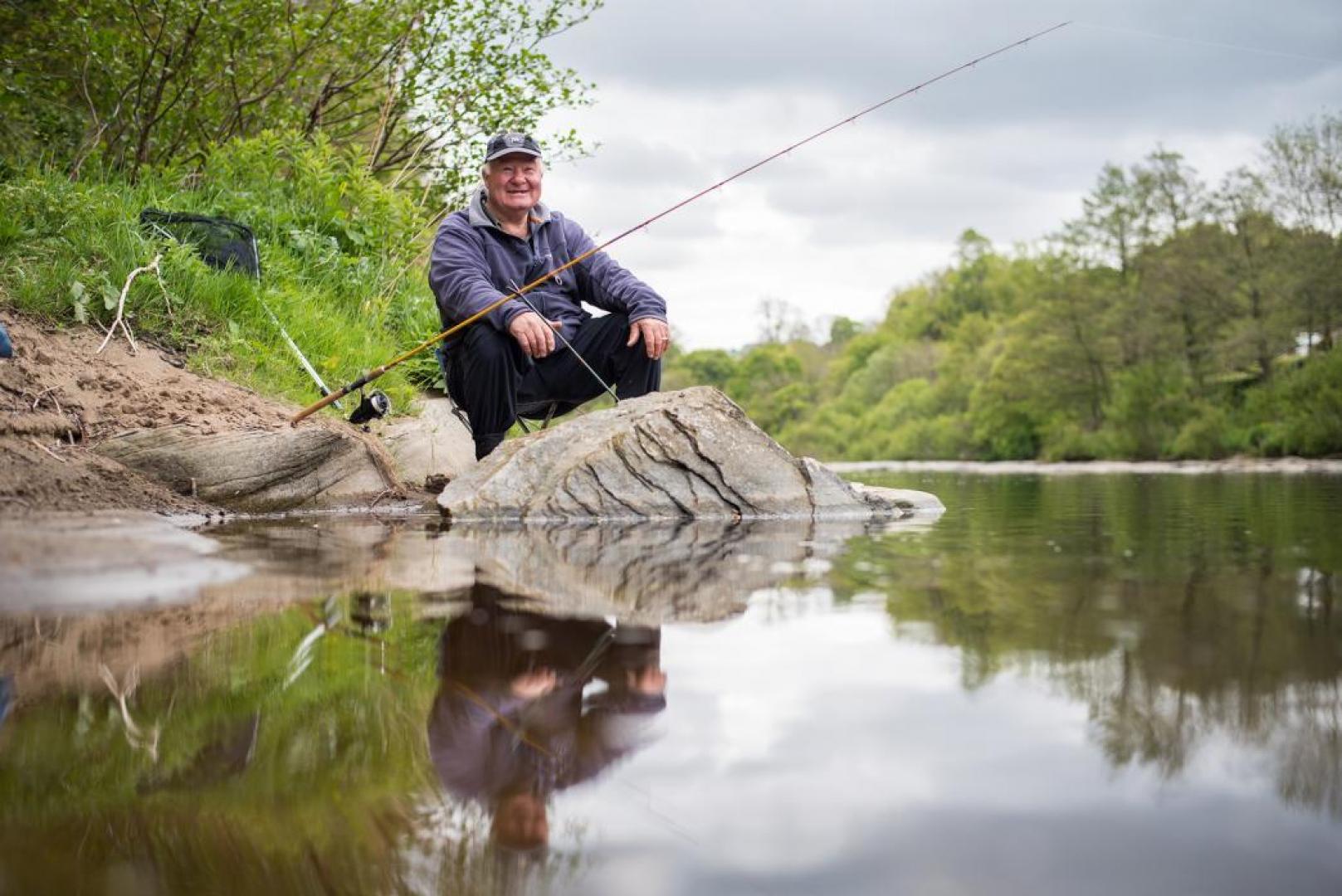FISHING THE TEES WITH ANDREW WILKINSON
MID-SUMMER is a season for slowing down. The great countryside writer Ronald Blythe, who died aged 100, early this year, wrote: “Summer, for many, is for perfecting the art of going nowhere. For simply being.”
It is a time of year when many anglers spend almost as much time looking, as they do fishing.
We appreciate our environment more in the hottest days than at any other time of year. Even getting to the river takes longer on all but the most well-trodden tracks. Thick, tall growth encroaches on either side of the path. Tall grasses, cow parsley and nettles combine with a range of other plants, to make the ground disappear in places, and rods have to be raised to prevent snags, arms to prevent scratches and stings.
These areas of thick, tangled growth are vital for fish health. They provide most of the terrestrial insects which, when a breeze carries them to the surface of the river, the trout are ready for.
And this untamed land helps filter harmful run-off from roads and farmland before it reaches the water.
Fortunately, the value of these narrow strips of vegetation, are valued more highly than ever. We need more of them, especially in the lower dale, where there is less woodland to provide a zone between fields and river.
Not that farmland lacks visual appeal. There is no sweeter sight than bright red poppies on the edge of a field of ripening wheat, framed by a summer sky. Few anglers can resist stopping to stare for a while into the shimmering distance.
Even on reaching the river we tend to look for longer before casting a line. With the river usually low and clear at this time of year, we creep more slowly to the water, looking for rising fish, or insect life, or sometimes to spot an unsuspecting trout lying on the bottom, or quivering in the current.
Sea trout enthusiasts in particular often visit the riverbank without taking their rods, spotting where fish are lying, sometimes before returning to the river at night to try and tempt one.
For daylight anglers, when ready to cast a fly, it pays to look carefully behind to check out grasses, shrubs, and low branches that can ensnare a back cast.
It is the most relaxed time of year to fish: we sink into summer.
In spring the excitement of the new season – and the cold – keep us on the move. In autumn, when the salmon fishing is often at its best, we target our quarry with gusto, knowing that the shortening days will soon bring down the curtain on another season.
But in summer we are more relaxed and reflective. Even the fish seem more laid back. They are not chasing the first of the season’s fly life, nor feeding greedily to fatten up for winter.
The food supply is plentiful now, and the trout will pick and choose. Some will follow a retrieved artificial fly into the river margin, before turning away without taking it. Others will let a carefully presented dry fly float over their heads without batting an eyelid – if fish had eyelids.
They can be caught of course, sometimes in good numbers when they are stimulated into feeding, perhaps after a spell of rain lifts the water level, or towards evening when the sun sinks, and insects are more numerous and easier for fish to spot.
When fish burst into life, so do anglers. When they slow down again, so do we.
However, not all is so laid back when it comes to pollution and fish deaths.
The Environment Agency and water companies are being put under pressure like never before.
From sea trout deaths in the lower River Wear, probably down to pollution and low oxygen levels in hot weather, to continued sewage releases, and farm slurry leaks into water courses, anglers and other river users are united in putting pressure on the authorities to take decisive action.
We still await the result of an EA investigation into Skeeby Beck suffering what is believed to be a digestate discharge three months ago. Wildlife, including insects and large numbers of fish died.
Another alleged release, this time into a beck in lower Teesdale, which flows into the Tees, has been reported. At the time children were playing near the mouth of the beck.
In the past such incidents might have not have attracted such attention. But times are changing.
Environmental awareness is here to stay.







